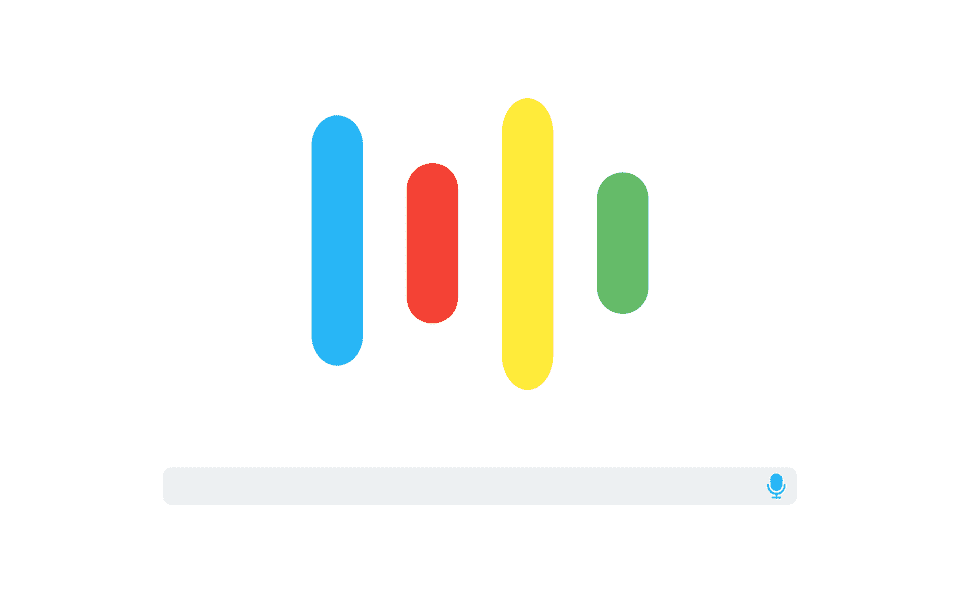5 min read
Blockchain Digital Identification: Is it Progressive Enough?
Anurag : Jun 15, 2018 11:30:04 PM
Security, protection, privacy, and ease of use of information and data are at the center of worry in a data-driven world. Regardless of whether you are discussing the utilization of that information in financial exchanges, healthcare, marketing data, traffic, government, defense, logistics, or simply ordinary end-user applications, for example, saving personal data storage.

How is Blockchain affecting Digital Identification?
It is of foremost significance to fathom this issue for clear reasons. Furthermore, what better way might we be able to have requested with the accessibility of Blockchain today.
The blockchain innovation can possibly oversee and confirm the user identity and certifications in a vastly improved, secure way.
Love what you read? Then grab a fresh piece of content right here.
What are Blockchains?
The blockchain title gives a decent visual implication to how the technology functions. Blockchains are advanced ledgers that utilize cryptography (for this situation an approach to ensure digital data through encryption) to cache blocks of information that are sequentially bonded together through virtual systems disseminated all around the world. Duplicates are stored online, making it hard to misrepresent data.
While all (or several) governments have declared types of physical, digital, and online identity, these don't perceive national limits. Once more, handling these identities much of the time will require trusted, prime experts and the information is put away centrally, which raises the cost of data storage as well as opens that information to every other person with access to central server centers. There is less or limited control of the data with respect to the end user.
Blockchain assists in making and administration of a digital ID that is saved on a decentralized computer system. Not exclusively would it be able to be utilized for validation purposes universally, it can be utilized at the worldwide platforms, and in particular to secure personal data.
Also Read: Why Blockchain will accelerate in 2018
Could Blockchain eliminate Scam?
Numerous supporters of blockchain innovation propose that it can wipe out fraudulence. While it's valid that blockchain makes it amazingly troublesome for hackers to mess with your data, it isn't reliable. With blockchain, at whatever point you make a data exchange or payment you can track the exchange data. This implies you could trace the end area of stolen money, for instance.
The issue is that your capacity to follow the transaction would close once the money is changed over to a physical money. So, while blockchain technology makes hoax more troublesome it isn't impenetrable to being breached. Latest hacker attacks on various online wallets demonstrate blockchain is on a coveted target of hackers.
Blockchain new businesses are investigating more decentralized data management frameworks by, at times, collaborating with technology, financial administrations, and government associations to alleviate the dangers of substantial scale cyber-attacks and identity falsification. They're likewise discovering approaches to give people, including the underserved, access to administrations that require substantial identification proof and they're ready to do significantly more effective than current know your client methods.
That being stated, blockchain offers genuine reforms regarding its identity management potential. In case you're ready to segment and direct which information outsiders can approach, you can deal with your online privacy and presence considerably more adequately.
Also Read: 8 Famous Blockchain Consensus Mechanism
What is Self-Sovereign Identity by Blockchain?
Blockchain has the engaging features for identity. Rather than sticking a virtual money exchange, it's conceivable to install identity data in the ledger. The expansive vision is that a blockchain could be a sealed reference point to confirm individual data without exposing the genuine information to a service co-op.
Clients would be responsible for their identity data, an idea regarded to as self-sovereign identity. That lessens the possibility that an information rupture would spill their details everywhere throughout the web.

Envision a reality where you are in immediate control of your own data; an existence where you can cut-off and curb how much data you share while holding the capacity to execute in the world. This is self-sovereign ID, and it is already hither. The blockchain is simply the basic innovation clearing the way to the self-sovereign identity through decentralized systems. It guarantees trust and privacy, where exchanges are secure, validated and verifiable and supported by applicable, permissioned members.
Indeed, we can now observe organizations and governments starting to build up and utilize these systems to take care of citizen demand and convey the guarantee of self-sovereign identity.
Also Read: Rise of Blockchain as as Service (BaaS)
Ease of Use for Clients
Regardless of whether the business issues around blockchain trust are resolved, there are long-running access administration issues that blockchain doesn't fathom, for example, key management.
People need to confirm they claim identity data utilizing some type of private computerized signature, either stored electronically or embedded in ID. Numerous governments as of now have successfully had computerized ID programs that do this. However, utilizing a blockchain to store data doesn't really make the management of those networks any less demanding.
There would be excessively numerous situations where you would require a manager to move back some exchange or allow access to somebody who has kept themselves out of their digital identity.
However, numerous experts contest that it will be years - if not decades - before blockchain like advances might be utilized for identity management at scale. Thus, there's additionally the need of teaching the self-sovereign ID and blockchain to people in general.
Also Read: Expert Voices on the future of Blockchain
How Benefitting is Blockchain Identity Management?
At its center, blockchain innovation gives us the chance to take control over the flow of our personal information and concentrate it. At whatever point we put information on the web, blockchain will have the capacity to take it and accumulate in one area. This implies the client could file taxes without having to physically place data into every single account they claim.
The utilization of such innovation will bring about considerably more productive online administrations. Today our personal information is decentralized with numerous levels needed to confirm our identity.
Rather than holding up for hours, the procedure could be decreased to minutes (it's implied paperwork would be diminished). As opposed to investing hours online filling out large forms, clients will have the capacity to just allow permission to their central information storage.
Also, there are millions overall who may have likewise forged their identity documentation. They may not be precisely who they tell they are. Birth authentications and identities checked on the blockchain would be time-stamped, unforgetable, and open to being viewed by all people to see.
Also Read: How safe is Blockchain Security
Future of Blockchain Identity Management
As said above, blockchain innovation is genuinely progressive concerning identity management. We live in the era where nearly everything about our own identity can be found on the internet. Our online information footprints are broad, consolidating every little thing about us from our name, age, locations, work history, financial history, and social records.

Many organizations, innovators, and philanthropic administrations are bouncing on this thought of "blockchain identity management". There is likewise a significant number who are considering the current money related framework responsible for taking to extraordinary aggregates of capital laundered from the human trafficking exchange. An amazing method to distinguish this is with the assistance of blockchain through transparency system. This could uncover numerous violations through public financial checking. The dispersed record can indicate where the trafficking trade reserves are going and end them by stopping the utilization of individual banking organizations by value.
Each snippet of data meets up to build our online profile. The way things are, we have little impact over how our information is utilized in light of the fact that it's not open to us. We can't see who approaches our information not to mention how our data is utilized.
At this moment we're in a position where data controllers are to a great extent mysterious and are allowed to grant our information to the third-party organizations (recent Facebook case is forefront for everyone). Similarly, we're in a powerless position too with regards to the scam, since we can't see where our information has been utilized until it's the point of no return.
Blockchain technology will empower us to track where our information is utilized so in the event that somebody is deceitfully utilizing our data we'll have the capacity to respond. Every one of our information will be put away in a centralized area offering an evident transfer history to help distinguish unapproved use.
Basically, utilizing blockchain as an identity management system enables the client to take control of their own information. By tracking and controlling how their data is shared, inhabitants can pick and select whom they decide to give their data to.
Also Read: How Blockchain finds its way in Data Analytics
Following services are normal to develop with blockchain technology:
- Having the capacity to meet worldwide privacy or identity prerequisites
- Decrease or dispense with repetitive compliance steps
- Better end user experience
While there is no uncertainty, the identity management is one of the greatest utilize cases for the blockchain innovation. This, but is still in an exceptionally early stage. It doesn't mean it isn't valuable and will never observe the aurora. There is still time and prior to it really grows predominant, significantly more should be done to take care of this issue of a digital identity issue, a multi-billion-dollar issue over the globe.
Need a project on Blockchain done? Then reach out to us for consultation.




